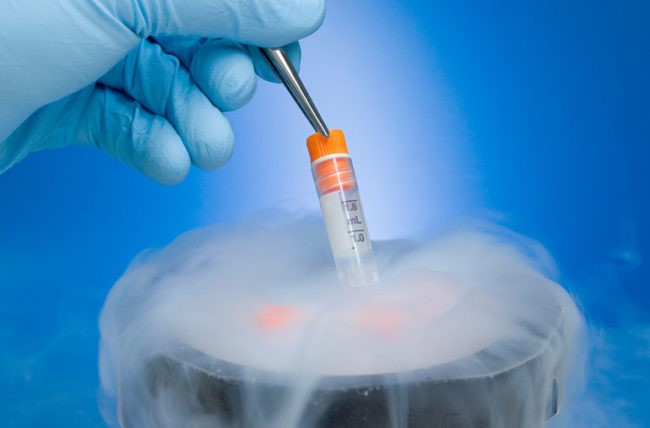
Fertility Preservation

Egg Freezing
During egg retrieval, you may choose to have some eggs cryopreserved (frozen). This process allows you to have IVF at a later date. This may be an important option if you have cancer or a chronic disease. Not all eggs that are frozen will survive after being thawed and not all eggs that are thawed will accept sperm (these eggs will not fertilize). On the day of egg retrieval or at the time of embryo transfer, your doctor might recommend that you begin taking progesterone supplements to make the lining of your uterus more receptive to implantation.
Embryo freezing
Embryo freezing is relatively safe and often leads to a successful pregnancy and delivery. The main aim of freezing embryos is to preserve them for later use. A person can also freeze eggs, which are not fertilized.
Who can benefit?
A person may decide to store an embryo if they hope to become pregnant in the future. The process begins by using hormones and other medications to stimulate the production of eggs which are then extracted from the ovaries, either for fertilizing in a lab or for freezing. An embryo forms after fertilization and after the cells start to divide. Fertilization often results in more than one embryo, and the doctor can freeze and preserve the remaining embryos.
Embryo freezing may be a better option for certain groups, such as:
- People with genetic disorders that affect reproduction
- People who will soon undergo chemotherapy
- People who take medications that affect fertility
- People who are approaching an advanced reproductive age and who are not yet ready to have children may also benefit from freezing embryos for later use
How do people freeze embryos?
Cryopreservation
Vitrification is the process used for preserving embryos. After the process of freezing is complete, embryos are stored in liquid nitrogen.
Success rates of thawing frozen embryos
The process of thawing an embryo after cryopreservation has a relatively high success rate, and results of research indicate that frozen embryo transfer might lead to a higher rate of pregnancy and better outcomes for both the woman and baby.
How long can embryos stay frozen?
In theory, a correctly frozen embryo can remain viable for any length of time. Embryos can stay frozen until it is the right time for pregnancy.
Fertility preservation for Men
Men may collect and freeze (cryopreserve) their sperm for future use before having a testicular surgery, or radiation/chemotherapy treatment for cancer. The sperm may be thawed later and used for IUI or IVF.
